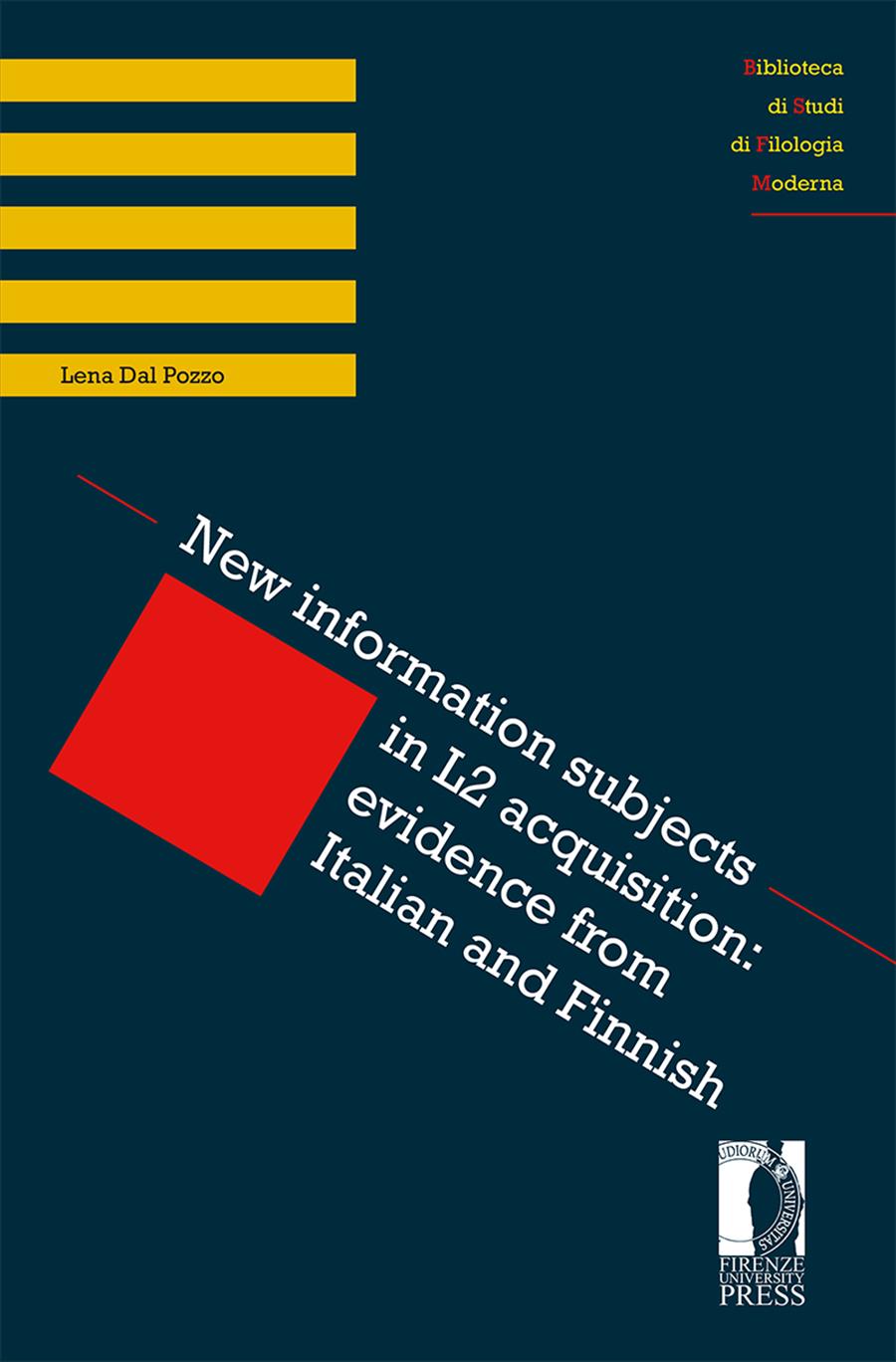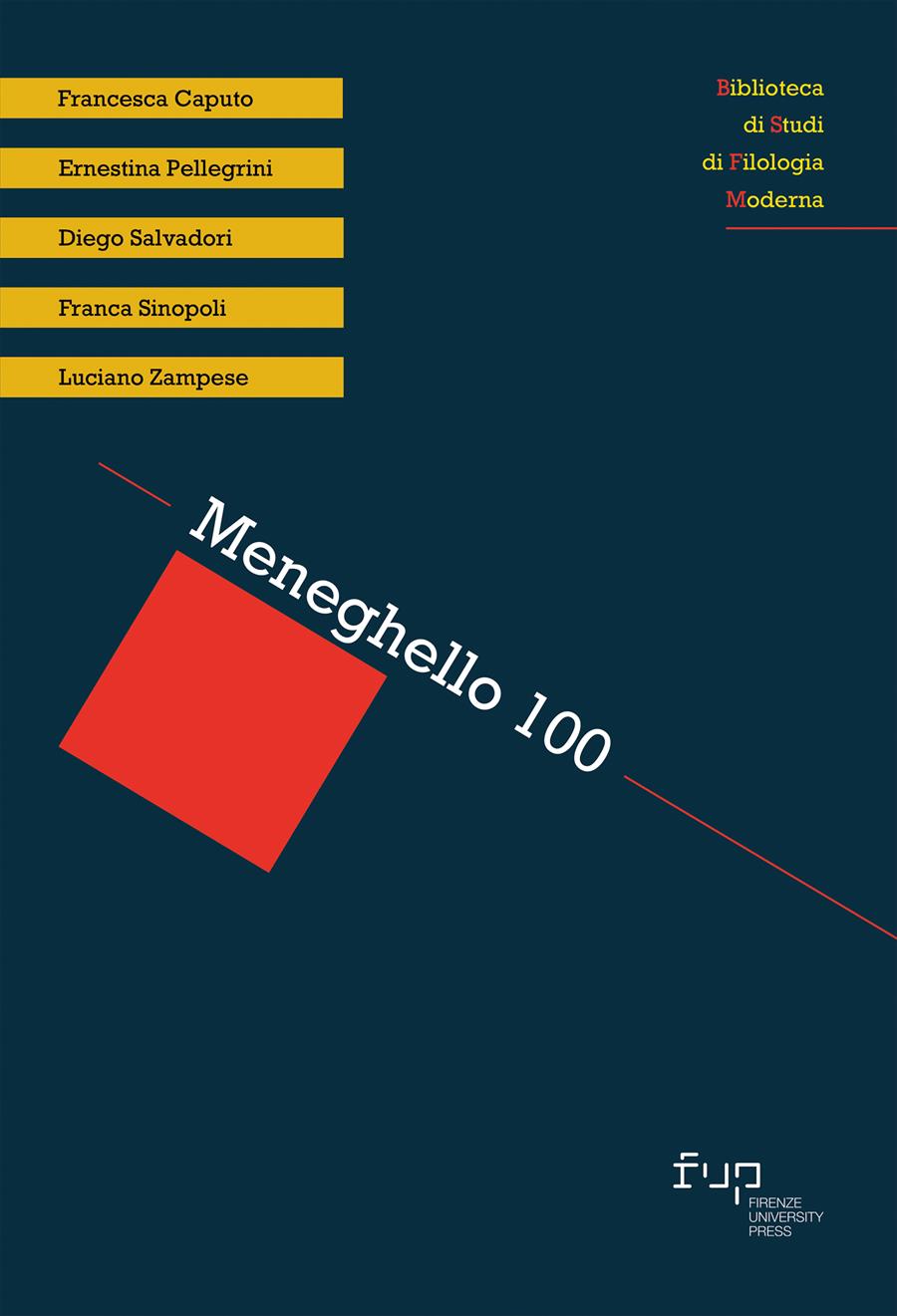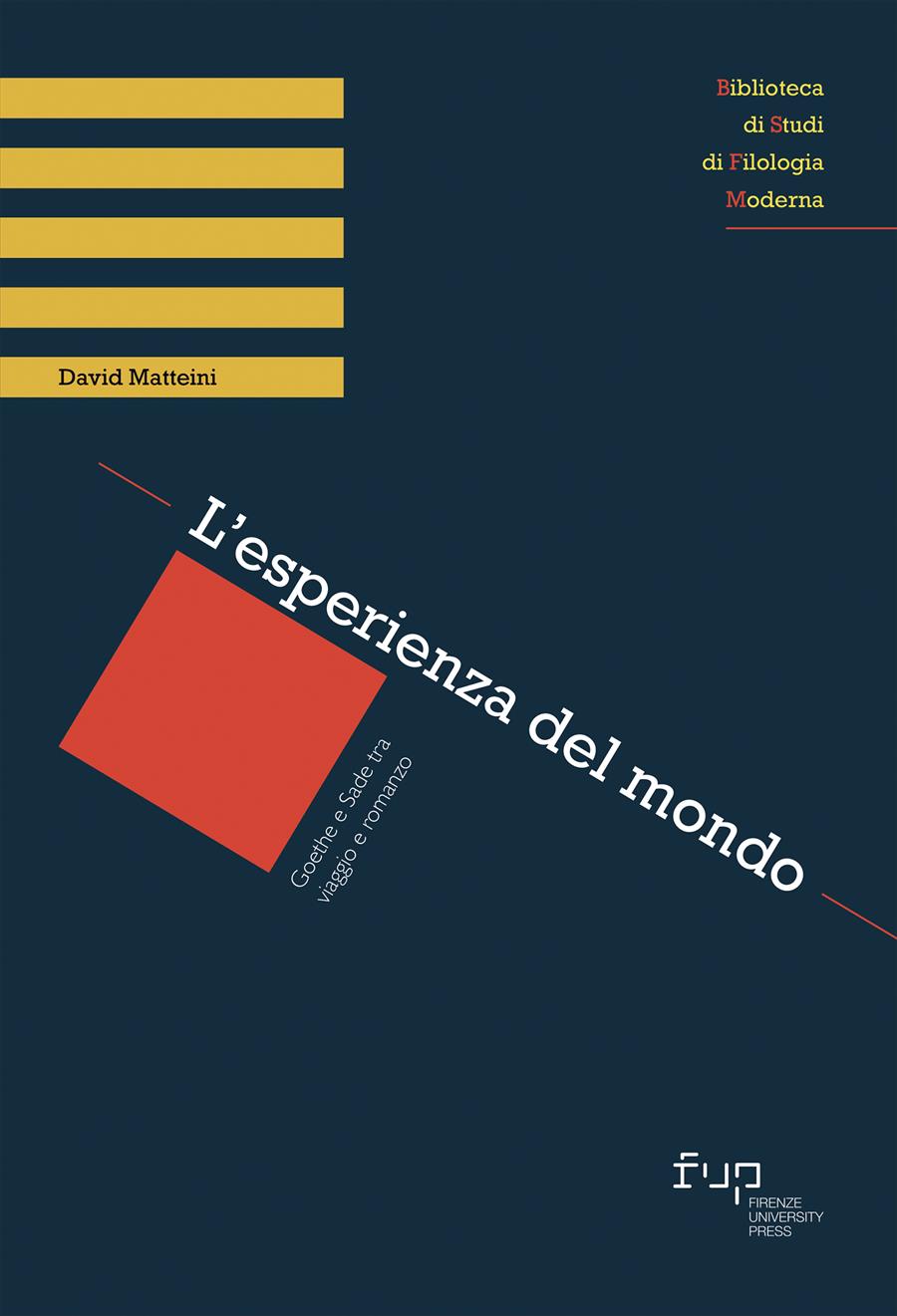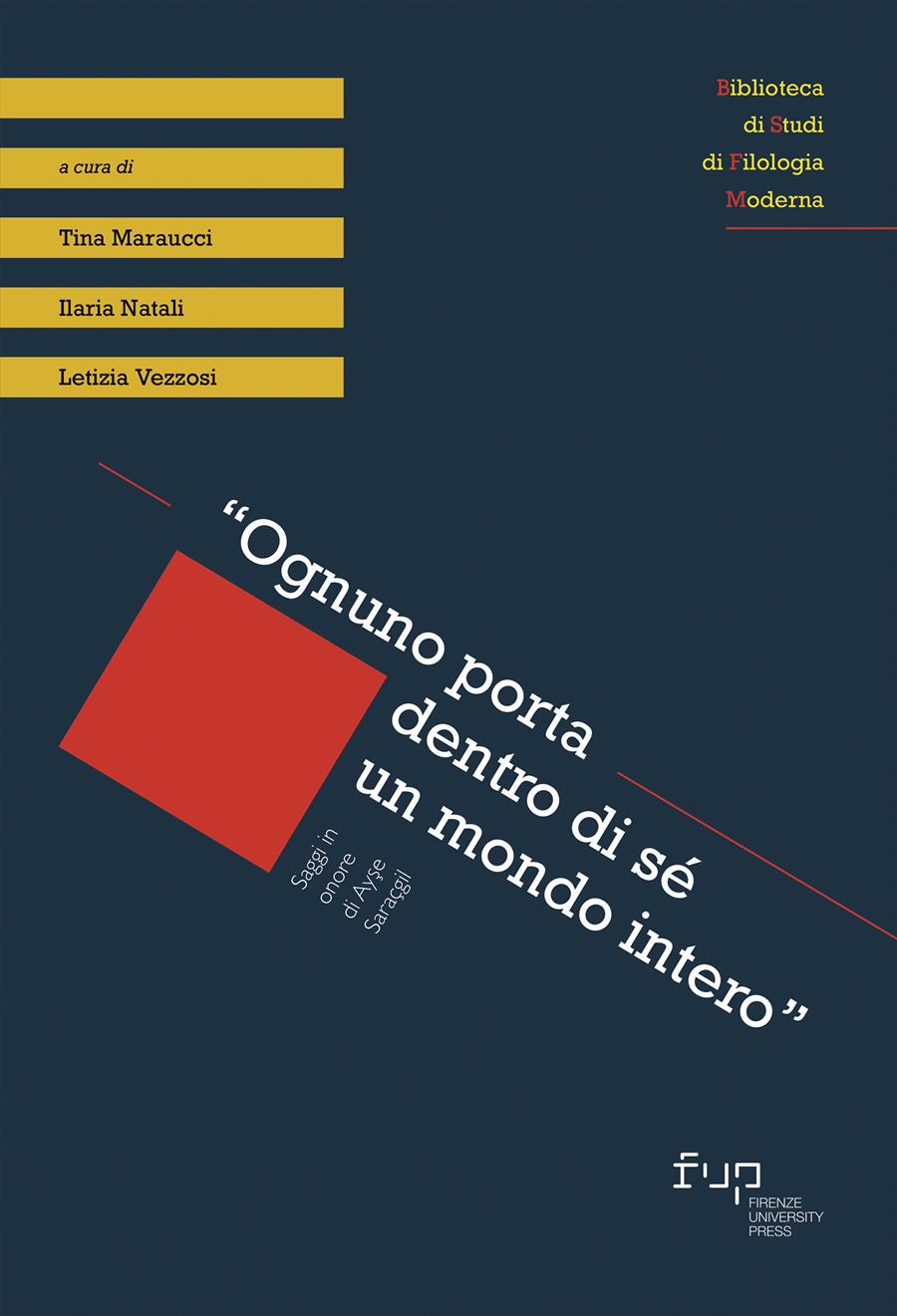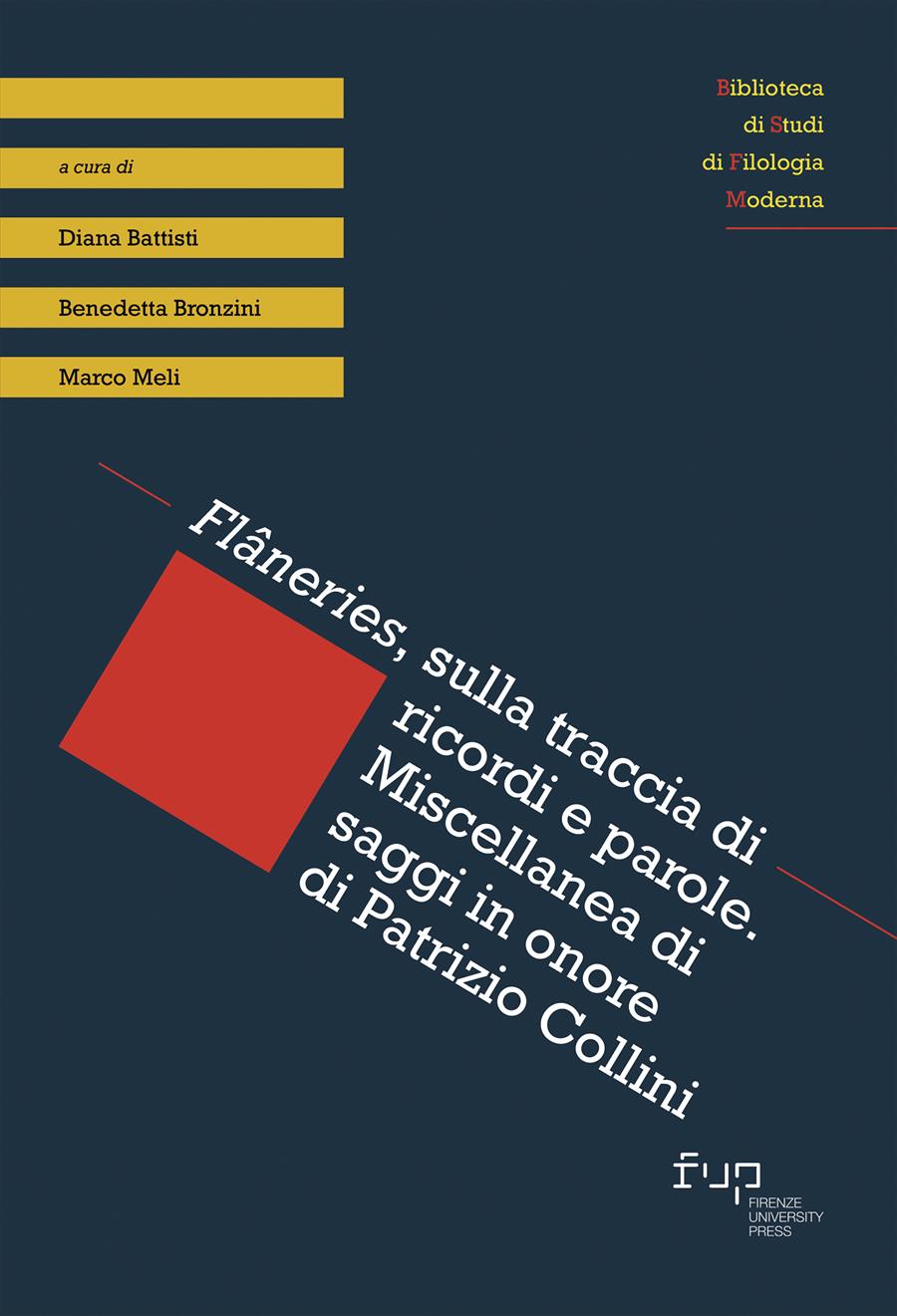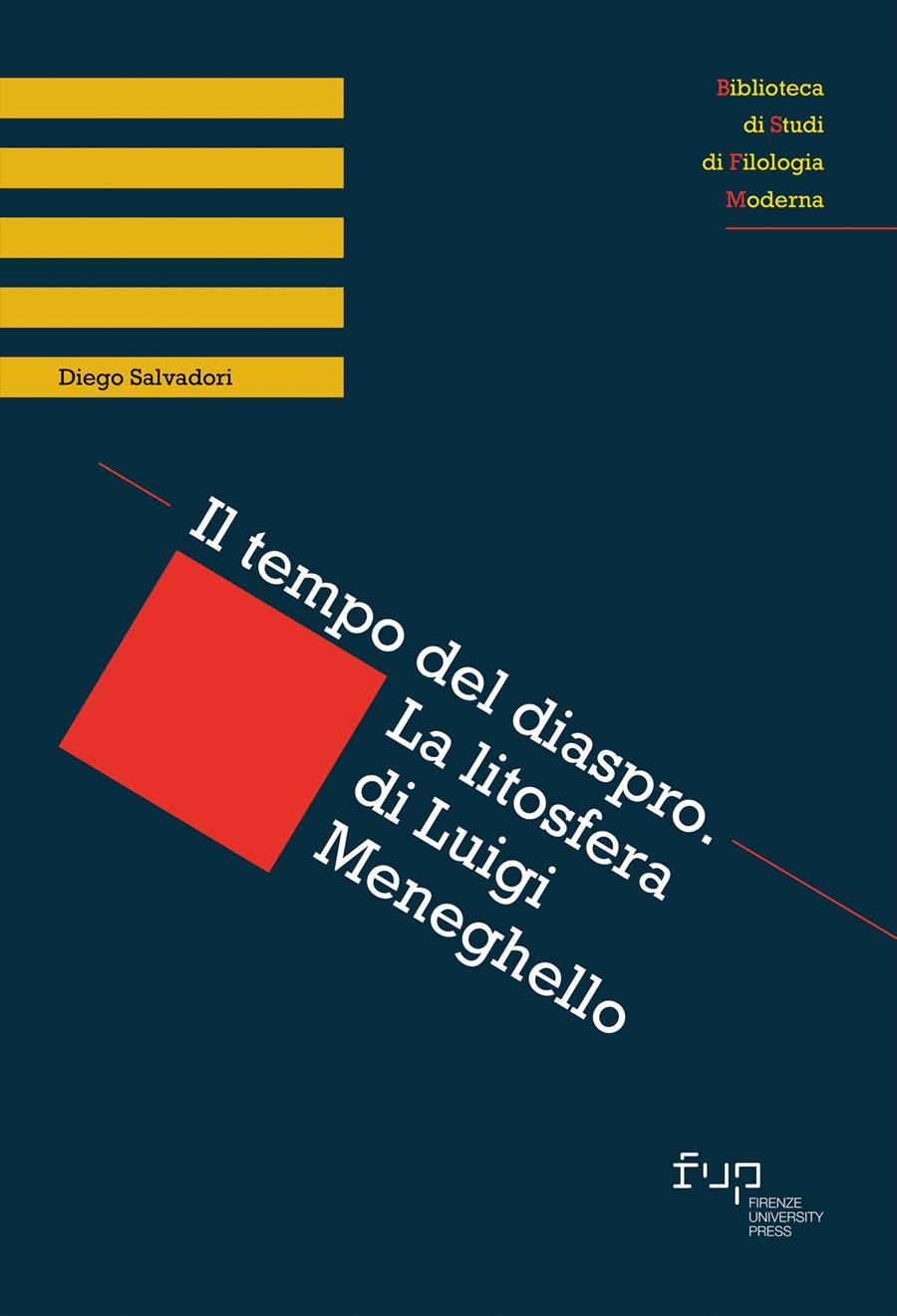New information subjects in L2 acquisition: evidence from Italian and Finnish
- Lena Dal Pozzo,
Recent work on second language acquisition within the generative framework has pointed out interfaces (syntax-discourse, syntax-semantics, etc.) as a residual domain of vulnerability in L2. Rather than in core syntax, it is at the interface level that the divergence between native and non-native grammars has been shown to be more prominent. In this book the investigation of answering strategies and the focalization of new information subjects, which require access to the syntax-discourse interface, will be pursued. Data is collected through an oral elicitation task on Finnish and Italian, a rather unexplored language pair, in various stages of language development: advanced and intermediate L2 acquisition, L1 under L2 attrition, early bilingualism, child monolingual L1 development.
- DOI: 10.36253/978-88-6655-870-5
- Series: Biblioteca di Studi di Filologia Moderna
- Scientific Board
- Language: Italian
- Subjects: Linguistic Linguistic
- Download PDF
-

- © 2015 Author(s)
- CC BY-NC-ND 3.0 IT
University of Florence, Italy
- Publication Year: 2015
- Pages: 152
- eISBN: 978-88-6655-870-5
- Content License: CC BY-NC-ND 3.0 IT
- © 2015 Author(s)
- Publication Year: 2015
- eISBN: 978-88-9273-306-0
- Content License: CC BY-NC-ND 3.0 IT
- © 2015 Author(s)
Bibliographic Information
Book Title
New information subjects in L2 acquisition: evidence from Italian and Finnish
Authors
Lena Dal Pozzo
Peer Reviewed
Publication Year
2015
Copyright Information
© 2015 Author(s)
Content License
Metadata License
Publisher Name
Firenze University Press
DOI
10.36253/978-88-6655-870-5
eISBN (pdf)
978-88-6655-870-5
eISBN (xml)
978-88-9273-306-0
Series Title
Biblioteca di Studi di Filologia Moderna
Series E-ISSN
2420-8361
